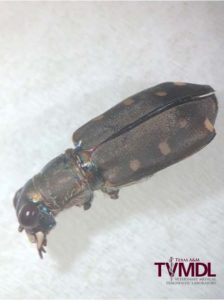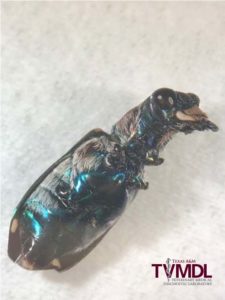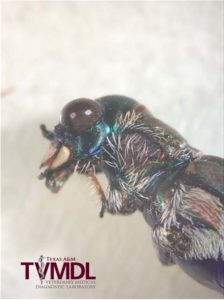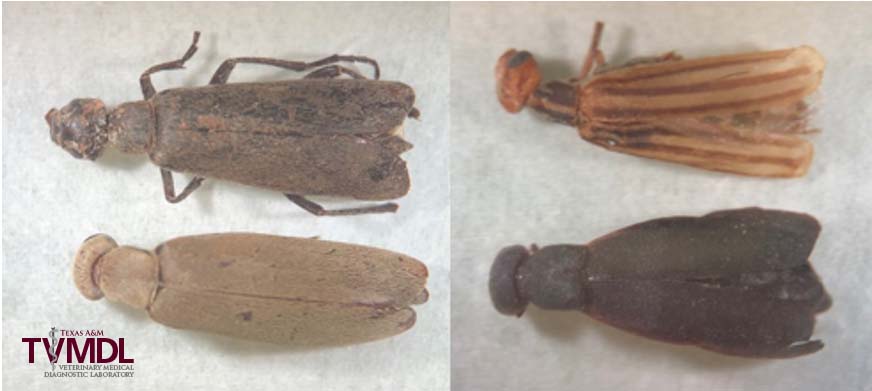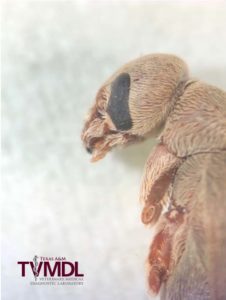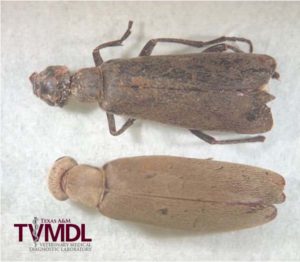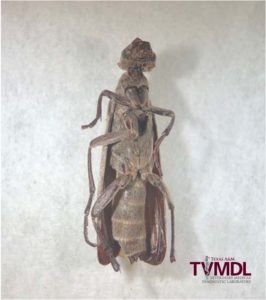Beetles Found in Alfalfa Hay
Travis Mays, MS, PhD
Beetles found in a new batch of alfalfa hay were submitted to the Texas A&M Veterinary Medical Diagnostic Laboratory (TVMDL) for identification. TVMDL’s toxicology section can identify toxic and non-toxic beetles using microscopic examination. The beetles submitted were identified as Tiger beetles (Cicindelidae sp.) (Figure 1). Tiger beetles are characterized by having large, carnivorous mouth parts (Figure 2) and a flattened abdomen (Figure 3). Tiger beetles do not produce cantharidin and are not considered toxic.
There are many different species of toxic, cantharidin-producing blister beetles (Figure 4). Blister beetles are characterized by having herbivorous mouth parts (Figure 5), a narrow thorax (Figure 6), and a cigar-shaped abdomen (Figure 7). Blister beetles are attracted to blooming alfalfa fields. Some species have a tendency to swarm and form clusters and can become incorporated into baled hay. Horses that ingest even a few beetles can become very sick. Cantharidin is a blistering agent and can cause ulceration and inflammation of the mouth, stomach, and intestines. Clinical signs can include decreased appetite, frequent drinking and urination, colic, and depression. Severe cases can cause endotoxemia, shock, and death within hours of ingestion.
There is no specific antidote for blister beetle poisoning. Treatment includes reducing absorption of the toxin by administering activated charcoal and mineral oil. Administering intravenous fluids and gastrointestinal protectants are also recommended. Management strategies for alfalfa include monitoring fields for the presence of blister beetles from June through September, cutting alfalfa at early bloom, and inspecting hay prior to feeding.
In addition to identifying beetles, the toxicology section at TVMDL uses liquid chromatography – tandem mass spectrometry (LC-MS/MS) to detect cantharidin in urine, serum, gastrointestinal content, and feed.
Contact Dr. Travis Mays to learn more about this case. For more information about TVMDL’s toxicology test offerings, visit tvmdl.tamu.edu or call 1.888.646.5623.
